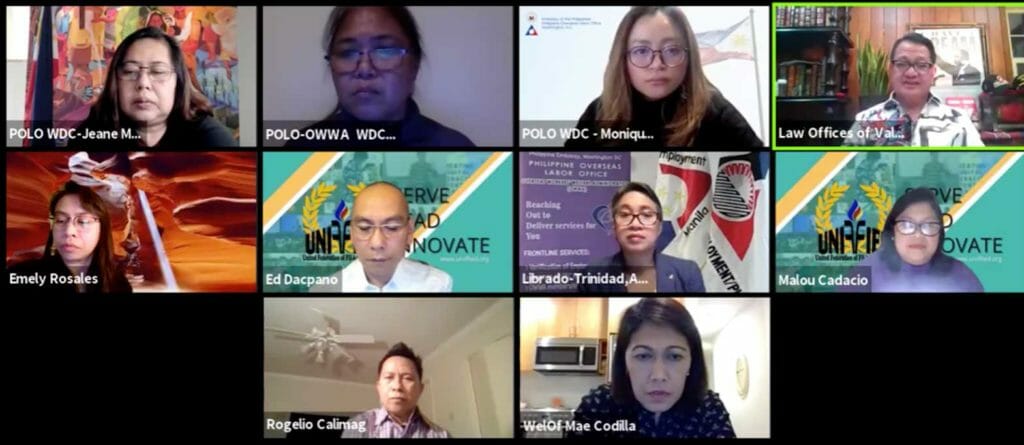Filipino teachers briefed on available U.S. visa, job programs

Filipino teachers joined a webinar on visa programs available to them especially in light of the teacher shortage in the U.S. CONTRIBUTED
WASHINGTON, D.C. – More than 100 Filipino teachers joined a webinar on visa programs available to them especially in light of the teacher shortage in the U.S.
Filipino teachers are deployed in the U.S. either through the H1B working visa or the J-1 cultural exchange program.
“The main objective of this webinar is to assist teachers in making an informed decision on which program or pathway would benefit not only the participant or the worker and his or her family but the country as well,” Commission of Filipinos Overseas Secretary (CFO) Francisco Acosta said.
The webinar was jointly sponsored by the Philippine Overseas Labor Office-Washington, D.C. (POLO-WDC), the Commission of Filipinos Overseas (CFO), and the United Federation of Fil-Am Educators (UNIFFIED).
Dubbed as “How to Be You, Po,” the webinar is the second episode of the series launched by POLO-WDC that started in 2020 following reports and complaints from Filipino teachers regarding the onerous fees charged by some agencies and individuals, and against unethical and unfair recruitment practices.
POLO-WDC Labor Attaché Angela A. Librado-Trinidad explained the accreditation and verification process for the deployment of workers under the H-1B visa program.
CFO Director Marie Apattad provided information on the Exchange Visitorship Program, more popularly known as the J1 Visa program.
Both representatives, however, stressed the difference between the two visa programs in terms of the expenses expected to be incurred as well as the benefits afforded to the teacher/participants.
As part of its information campaign, POLO WDC invited teachers Emely Rosales and Roger Calimag to share their experiences from being J-1 visa program participants to eventually becoming workers in the United States under the H-1B visa program.
And while they had to go home to await the processing of their H-1B visas, which included the accreditation and verification from POLO, both teachers expressed their preference to the H-1B program as it provides them a pathway to regularization in the United States.
Deputy Chief of Mission Jaime Ascalon, Jr. reminded the attendees that “information is key especially on this major career move, and the Philippine Embassy is here to raise awareness on the profile of Filipino workers here in the US because our Filipino teachers, nurses, engineers are the best.”

